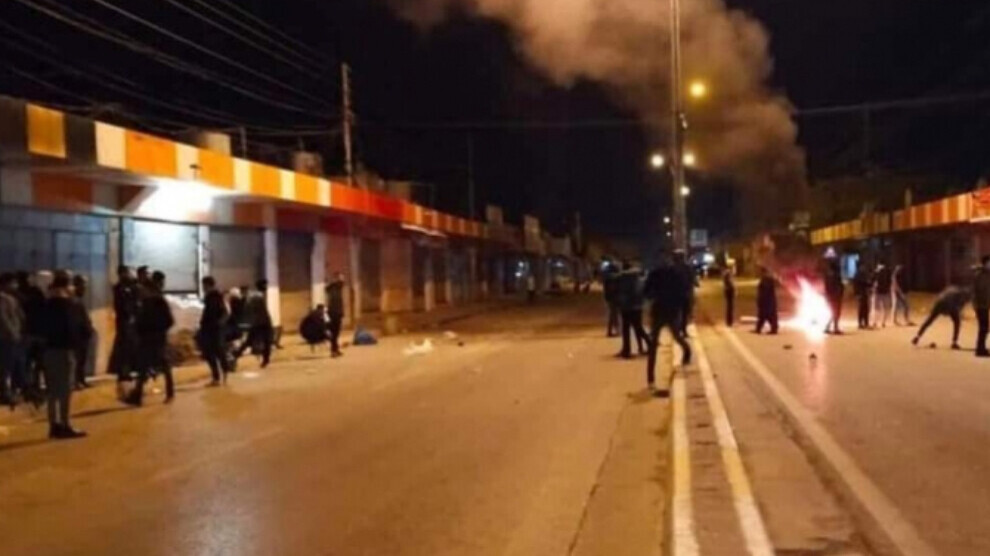Protests in South Kurdistan only for salaries?
What began a week ago in Sulaymaniyah as a protest by teachers has now developed into a general protest movement in several south Kurdish cities.
What began a week ago in Sulaymaniyah as a protest by teachers has now developed into a general protest movement in several south Kurdish cities.

South Kurdistan does not come to rest. What began a week ago in Sulaymaniyah as a protest by teachers has now developed into a general protest movement in several South Kurdistan cities. In Erbil, the security forces are refusing to give permission for protests and are thus trying to prevent them from spilling over. In any case, the city of Duhok has been in a state of emergency since last summer. Numerous activists and teachers there who would be able to lead protests have been in prison since August.
Employees in the education sector have initiated a fundamental dynamic in the south Kurdish civil society. While practically no effective measure against the spread of the corona virus has been taken in South Kurdistan in recent months, the schools were not opened in the new school year with reference to the pandemic. The decision, announced on November 1, initially provided for almost all schools to be closed for one month, but was extended for another month on December 1. In response, teachers took to the streets on December 2nd. However, their protest was attacked by the security forces.
And so the protests broadened while at the same time widening their content. First in the town of Pîrêmegrûn and shortly afterwards in Said Sadiq the protesters set fire to the representations of political parties. Numerous administrative buildings were also targeted by the demonstrators. As a result of the use of live ammunition by the security forces, four young demonstrators have died and many have been injured.
As much as the protests in South Kurdistan are associated with largely unpaid salaries, it would be wrong to understand them as limited to only that. Because the protests, which have been growing ever stronger for the past three days, are largely led by the young generation. They don't take to the streets demanding that their salaries be paid. It is evident that by attacking representatives of the antiquated political system, they are expressing their anger against this very system. The economic and political situation in South Kurdistan has led to frustration and discontent among them. This is also indicated by the voter turnout in 2018, which fell from 74% to 58%, with the young generation's dissatisfaction with the political system playing a major role.
As in the entire Middle East, the young generation also makes up a relatively large proportion of the total population in South Kurdistan. While in the Middle Eastern average the age group between 15 and 29 years represents 28% of the population, in South Kurdistan 50% are under 32 years old. Every year 24,000 young people graduate from one of the 35 (mostly private) South Kurdish universities. But while employment in the public sector has swelled excessively, the private sector is unable to provide jobs for all of the university graduates. In addition, the university sector is not geared towards the needs of the regional economy anyway. As a result, many university graduates are released into unemployment after graduation or cannot find a job in their training area.
According to official information, around a quarter of all 15 to 34 year olds in South Kurdistan are unemployed. For women it looks even grimmer. South Kurdistan has the lowest female employment rate in the entire Middle East. While it is 18.8% on average in the Middle East, only 12.2% of women in South Kurdistan are employed. As 75% of employed women work in the public sector, they are particularly hard hit by the fact that salaries are not paid. The share of women in the unemployed population is 29%, while 42% of the unemployed belong to the younger generation.
A study by the company Global Partners Governance, which was carried out among young people in Iraq, points out that the changing social dynamics in South Kurdistan also have an impact on the national identity of young people. The study found that the importance of a national self-image based on party affiliation is declining among young people in South Kurdistan. It is replaced by a Kurdish national identity that is more liberal and civil. It is actually the case that a large part of the South Kurdish youth is hostile to the political division in their society - and they express this strongly on social media. Like the majority of the general population, they also long for unity. Fragmentation and division affect them in the form of fears for the future and a lack of prospects. This circumstance contributes significantly to the trend among the South Kurdish youth to flee abroad - especially to the West.
The youth of South Kurdistan have a huge potential, for whose development only the right attitude and a little support would be necessary. These young people long for a life without political, economic and security problems. In everyday life, their contradictions with the prevailing system deepen from day to day. Instead of acknowledging this, the chairman of the KDP parliamentary group, Omid Xoşnaw, recently called the protesters “motherless and fatherless slaves”. Such an attitude will only increase the youth's anger.
RELATED NEWS: